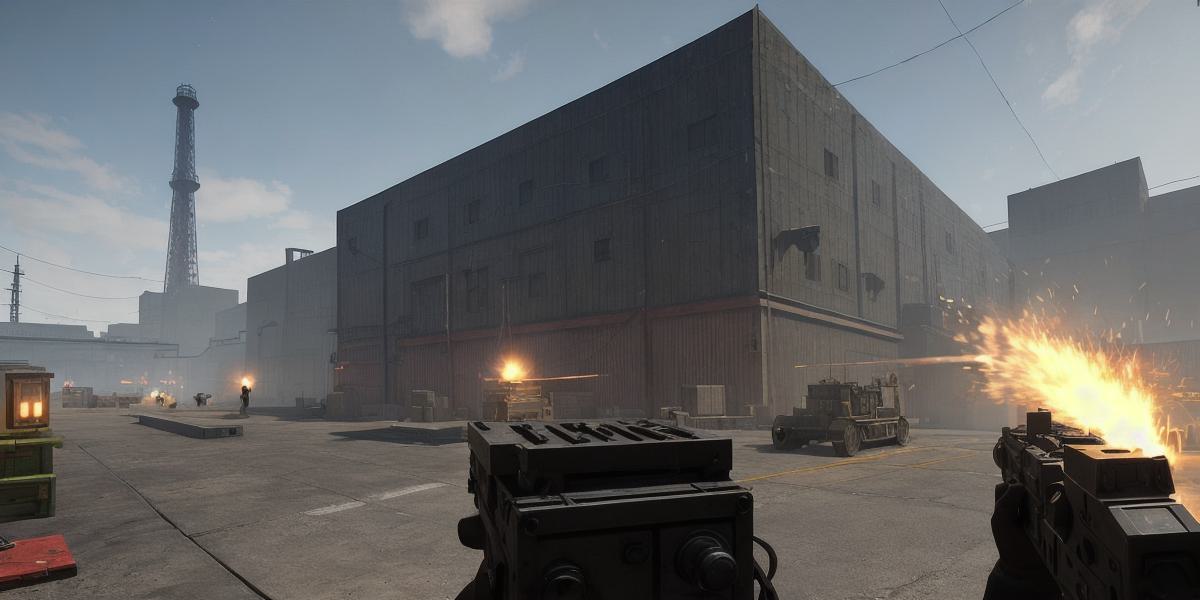Factory Raid Start in Private Server: Timely Insights

As a programmer, you’re aware of the importance of staying up-to-date with the latest trends and technologies in your field. One trend that has recently caught my attention is the rise of factory raids in private servers. In this article, I’ll provide you with timely insights on this topic, including what factory raids are, how they work, and why you should be concerned about them as a programmer.
Factory Raids: What Are They?
Factory raids refer to the act of stealing or hacking into private servers owned by individuals or companies. These attacks can result in significant data breaches, which can compromise sensitive information such as personal details, financial records, and intellectual property. Factory raids are often carried out by skilled hackers who use sophisticated tools and techniques to gain access to the target server.
How Do Factory Raids Work?
Factory raids typically involve several stages, including reconnaissance, exploitation, and data exfiltration. The first stage involves gathering information about the target server, such as its IP address, operating system, and any known vulnerabilities. In the second stage, the attacker uses this information to exploit these vulnerabilities and gain access to the server. Finally, in the third stage, the attacker extracts data from the server and exfiltrates it to a secure location.
Why Should Programmers Be Concerned About Factory Raids?
As a programmer, you have valuable knowledge and skills that make you a prime target for factory raids. If your private server is compromised, you risk losing access to sensitive data and intellectual property that could be used by cybercriminals for malicious purposes. In addition, if you are involved in a data breach caused by a factory raid, you may face legal consequences that could damage your reputation and career.
Best Practices for Protecting Your Private Server
To protect your private server from factory raids, there are several best practices you can follow:
- Use strong passwords: Use a combination of uppercase and lowercase letters, numbers, and symbols to create a strong password that is difficult for hackers to guess.
- Keep your software up-to-date: Regularly update your operating system, antivirus software, and other applications to ensure that you have the latest security patches and protections.
- Use a firewall: A firewall can help prevent unauthorized access to your server by blocking traffic from known malicious IP addresses.
- Back up your data: Regularly back up your data to an off-site location, such as a cloud storage service or external hard drive, in case your server is compromised.
- Limit access: Only grant access to your private server to trusted individuals who need it for their job.
Conclusion
Factory raids are a growing concern for programmers and other individuals with valuable data stored on private servers. By following best practices for protecting your server, you can reduce the risk of becoming a victim of a factory raid. It’s important to stay informed about the latest trends and technologies in cybersecurity to ensure that you are well-protected against these types of attacks.
FAQs
- What is a factory raid?
A factory raid refers to the act of stealing or hacking into private servers owned by individuals or companies. - How do factory raids work?
Factory raids typically involve several stages, including reconnaissance, exploitation, and data exfiltration. - Why should programmers be concerned about factory raids?
As a programmer, you have valuable knowledge and skills that make you a prime target for factory raids. - What are the best practices for protecting your private server from factory raids?
To protect your private server from factory raids, use strong passwords, keep your software up-to-date, use a firewall, back up your data, and limit access.








